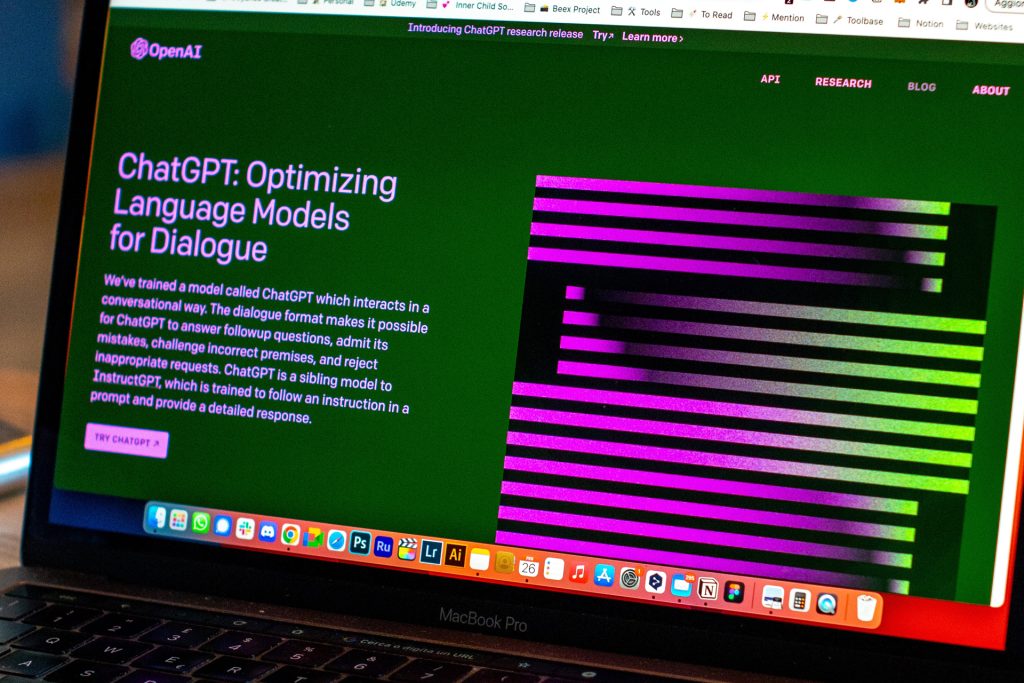Artificial intelligence (AI) is having a profound impact on the way we write, from enhancing the accuracy and speed of writing to enabling us to generate entire pieces of content from scratch.
AI-powered tools are revolutionizing the writing process, making it faster and easier than ever before. AI is being used to help writers craft stories, create content for marketing efforts, and even to automate the editing process.
AI can identify errors in grammar, punctuation, and spelling, and suggest improvements. It can also help with the formatting of documents, ensuring that the right style is used throughout. AI is also being used to generate entire pieces of content. AI algorithms can be programmed to recognize patterns in data and use them to generate content. This is being used to create compelling articles, blog posts, and even books.
AI-generated content is becoming increasingly popular, as it allows writers to quickly produce content with minimal effort. AI is also being used to make the writing process more efficient.
AI-powered tools can be used to track writing progress, provide feedback and suggestions for improvement, and even generate personalized writing prompts. This makes it easier for writers to stay on task and produce higher-quality work in a much shorter amount of time.
In short, AI is having a profound impact on the way we write. AI-powered tools are making it easier and faster than ever before to produce compelling pieces of content, and even entire books. As AI continues to evolve, we can expect to see even more innovative ways to improve the writing process.
Impressions of greatness
Did you notice anything about that blog? Was the tone off? If you have read my other blogs, you will know I like to ramble and include personal stories as much as possible. This one was different.
The above was written entirely by ChatGPT, the artificial intelligence chatbot developed by OpenAI (other chatbots are available…). ChatGPT has been in the news a lot lately, with the Atlantic hailing it as one of its “Breakthroughs of the Year” for 2022.
Naturally, as someone who writes for a living, I wanted to give it a go. I tried several different prompts for the above blog, and all the outputs followed a pretty similar format.
AI is a tricky beast. It is easy to forget that while it can be extremely clever, it does not know everything. Humans are prone to anthropomorphise, bestowing human traits on objects, animals, plants, etc. A similar phenomenon occurs with AI, known as the ‘ELIZA Effect’, whereby we unconsciously attribute “human thought processes and emotions” to AI. While it may learn, it cannot think for itself. If the inputted dataset is in some way flawed, the output will also be flawed. It does not have an opinion but is driven entirely by the data it has been fed.
An example of this is a story from 2018. Amazon, wanting to further automate its recruitment process, developed AI technology designed to sift through applicant CVs. It worked a charm! Well, partially…The team used historical data, so the AI was trained using patterns observed from past successful applicant CVs. This had the rather awkward result of the technology recommending male candidates over female ones. According to Reuters, “it penalized resumes that included the word “women’s,” as in “women’s chess club captain.” And it downgraded graduates of two all-women’s colleges, according to people familiar with the matter.”
AI bias is concerning and something we must be aware of when using it. It is a tool and the content generated should be vetted. It is quite easy to generate a seemingly plausible argument using ChatGPT, but when you dig deeper the basis of the argument can be deeply flawed. As OpenAI’s CEO, Sam Altman, noted on Twitter, “ChatGPT is incredibly limited but good enough at some things to create a misleading impression of greatness.” While it is true that humans are also biased, we must make sure that these biases aren’t amplified through the use of AI.
With the release of ChatGPT-4 in early March 2023, the water has become murkier. It is a large improvement on older versions – it can pass complicated exams, solve logic puzzles it was unable to previously, and can complete more complex coding and writing tasks. However, it suffers from similar issues to that of its predecessor – still exhibiting bias and can be prompted into providing inaccurate information.
This is not an anti-generative AI blog. When used effectively, AI can be an extremely powerful tool. I’ve used ChatGPT to help prompt me when I’m stuck thinking of something to write, I’ve used it to shorten lengthy sentences, and I’ve even used it to make silly poems about public relations. It’s very useful, continuously improving, and can be quite fun to play around with. However, don’t rely on it as a font of all knowledge. As with everything, check your sources.


